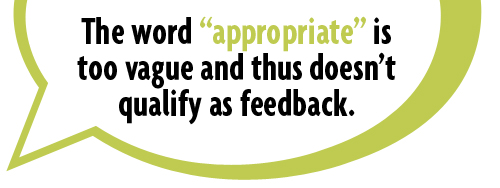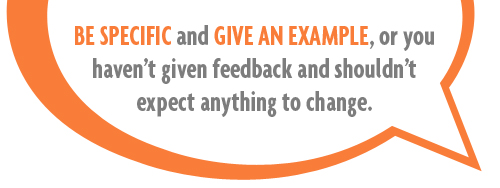Office Dress Code – Flip Flops and Cargo Pants Are Not Business Casual
No one wants to tell you you’re dressed inappropriately for work.
The office dress code conversation seems to be feedback managers avoid and struggle with the most. Perhaps because attire is so personal, I’m not sure. But I do know that I’m getting more and more requests to train managers how to give employees feedback that their butt crack is showing. Yes, really.
Many employees push the envelope on the office dress code during the summer, breaking out tank tops, jeans and capri’s. The problem with dressing this casually is that some of the people you work with will judge you for it, but they are not likely to tell you. They’ll just decide you have poor judgment and that you may not be the right person to stand in for your boss at a meeting or conference.
A couple of office dress code guidelines to follow, unless you work in a very casual office environment where even the folks at the top wear jeans and t-shirts to work:
- Make friends with your iron, or a dry cleaner.
- If you put something on and ask “Can I get away with this,” the answer is most likely no.
- Ladies, your cleavage should never show at work. Never ever. It will only limit your career.
- T-shirts and cargo pants are not business casual.
- Capris and sandals are ok, if your company allows them. Spandex and shorts are not.
- Thongs and butt cracks are a no-no. Ladies, don’t wear low rides to work. Men, if your belt sits below your stomach, buy a bigger pair of pants and raise the belt. This will solve the butt crack problem.
- Ladies check your skirt length. If it’s too tight or too short, it’s not for the office.
- Lots of women are wearing really high heels to work. They look great, at a club.
- General rule of thumb, if can comfortably leave work and go to a club or a baseball game, you’re not dressed conservatively enough for work.
Most of these suggestions are aimed at women because women have more flexibility with clothing and thus a greater margin for error. Men have the man’s business casual uniform: khakis and a button down or golf shirt. That’s hard to screw up, unless of course you sleep in the khakis.
Here’s how you can give a woman feedback that she isn’t dressed appropriately for your office dress code:
“I’ve noticed that some of your clothing shows cleavage. When people look at you, I want them thinking about how smart you are and all that you add to our organization. I don’t want them distracted with something else.” Replace cleavage with whatever misstep the person is making.
Here’s another example: “I’ve noticed that you wear short skirts and pretty high shoes to work. We work in a pretty conservative environment. You always look great, but not for our office environment. I’m going to ask you to wear longer skirts, that aren’t as form fitting, with lower shoes. I know this conversation is awkward, and I appreciate that you’re willing to have it with me. When people look at you I want them thinking about how smart you are and all that you add to our organization. I don’t want them distracted with something else.”

Notice, I didn’t say, “You’re not dressed appropriately for work.” The word “appropriate” is too vague and thus doesn’t qualify as feedback. Being vague doesn’t tell the person what to do differently. If your employees felt that what they are wearing to work was inappropriate, they’d wear something else. You need to spell it out. And this is true for all forms of feedback. Be specific and give an example, or you haven’t given feedback and shouldn’t expect anything to change.

Men, you can’t have this conversation with the women in your office. Ask a woman the employee has a relationship with to have the conversation on your behalf.
Read How to Say Anything to Anyone to get the words to have other difficult feedback conversations.
Some of you are currently gasping, thinking there is no way you can have this conversation. Yes you can. I have these office dress code conversations with clients regularly without damaging my relationships. So few people will tell someone when they’re wearing clothing that damages their reputation, when the feedback recipient gets over being shocked and embarrassed, s/he’ll thank you for caring enough to give such honest feedback.


